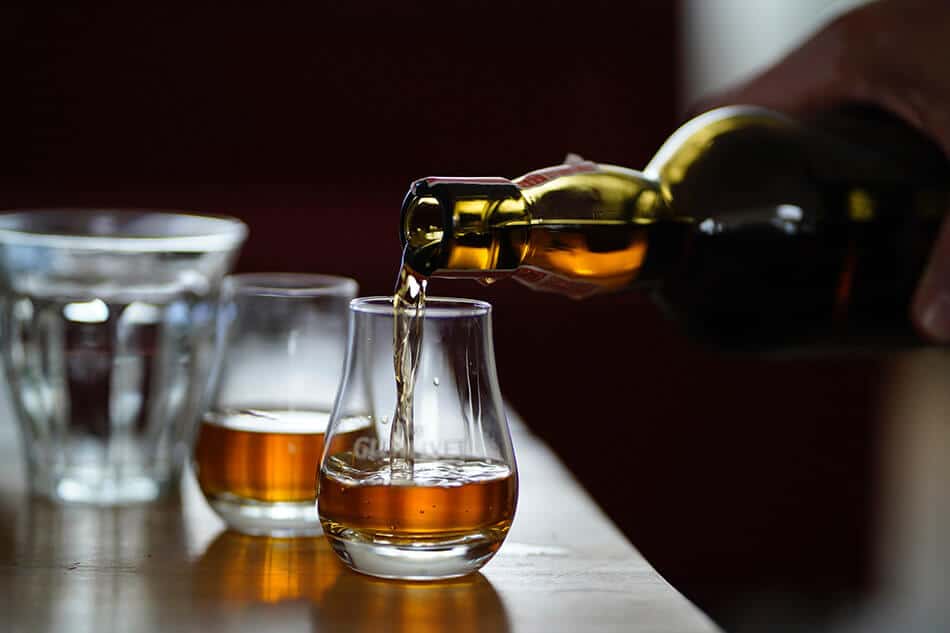The US and Europe have been having disputes over exports for about fifteen years. The whiskey industry took a hit after the EU raised taxes on whiskey exports coming from the US in June of 2018. After one year since the tariff hike, distillery makers, such as Mountain Laurel Spirits, lost at least 10 percent in sales. European distributors of whiskey would not sell US exports as a result.
Retaliation to US Tariffs
When it comes to associating Trump and tariffs, it seems like exported goods lose their value in other countries, including American whiskeys and spirits. As a result of tariff hikes from the US, affected countries in Europe have raised its taxes as retaliation. Future tariff policies could cause more damage to the sales of whiskey and bourbon.
The Distilled Spirits Council in the US presented data which revealed that the whiskey industry went down by 21 percent from June 2018 to June 2019. American whiskey exporters are having difficulties in sending out higher volumes of shipment than before, which has taken a significant toll on whiskey makers. Prior to the increase in tariffs, US whiskey exports made around 757 million dollars. Following the tariff hike, exports went down to 597 million dollars. The total sales of American whiskey in the industry were 3.6 billion dollars in 2018. According to the Distilled Spirits Council, about 63 percent of whiskey exports suffered losses in countries such as the European Union, Canada, China, Mexico, and Turkey.
Mountain Laurel Spirits LLC owner Herman Mihalich reacted to the export problem, “We went from a marginally profitable business to breaking even.” He expresses concern over losing customers in Europe who buy his award-winning Dad’s Hat Pennsylvania Rye Whiskey.
Reactions from Distiller Makers
In response to the tariff hike on US whiskey exports in Europe, many members of the Distilled Spirits Council ceased to proceed with their business expansions across the country. Scott Harris, a member of the council who owns Cactoctin Greek Distilling Co, has plenty of empty bottles as a result of the tariff hike.
Harris bought a large number of European-sized bottles with hopes of making sales in Europe just before the increase in export taxes. Because the US market requires a minimum of 750 ml for bottles, Harris cannot fill the 700 ml bottles that he bought for the European market. “We had one distributor we signed a deal with. He just stopped returning our phone calls. We’ve been trying very hard to get into the UK and France, and we can’t get any distributor to talk to us right now,” expressed Harris. The sales of Cactoctin Greek Distilling Co are crippling each day.
James E. Pepper owner Amir Peay said that the company invested “hundreds of thousands of dollars” to grab the attention of the European market. “The way the market is now is extremely disappointing.” Mountain Laurel Spirits, based in Pennsylvania, tried another way to recover from the decrease of sales by getting into new markets in the US. The challenge is establishing a licensed in-state wholesaler in each state. The process of drawing contracts is hectic and is accomplished differently across each state, according to Mountain Laurel Spirits owner Herman Mihalich.
Small and large distiller companies alike are suffering heavy losses as a result of the trade war between the US and Europe. Brown-Forman Corp, the maker of the renowned Jack Daniels whiskey in the US, suffered a loss of about 125 million dollars after one year of tariff increase in Europe. Lawson Whiting, chief executive of the company, commented that the damage was “quite personal” because it manufactures more than 50 percent of all whiskeys in the US.
A representative of the US Trade office met with the Distilled Spirits Council chief executive Chris Swonger to discuss matters regarding whiskey exports. According to the trade representative, the US is preparing another tariff policy that would increase taxes on European wines and spirits exports by up to 100 percent. In response, Swonger asked that the US government should not raise tariffs on European exports because Europe may retaliate again with more tax increases. “American whiskeys have become collateral damage,” expressed Swonger. The Distilled Spirits Council also mentioned that the worsening of the trade war between the US and Europe could displace or reduce by 11,200 up to 78,600 jobs in the beverage and alcohol industry. The industry currently has 2.4 million employees.
Despite the backlash, some distiller companies still have products that are in demand in the market. The Kentucky bourbon, a widespread variety of whiskey in the US, has reached highs of up to 1.7 million barrels in 2018 alone. According to the Kentucky Distillers Association, the whiskey did not reach its peak since 1972.














